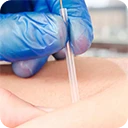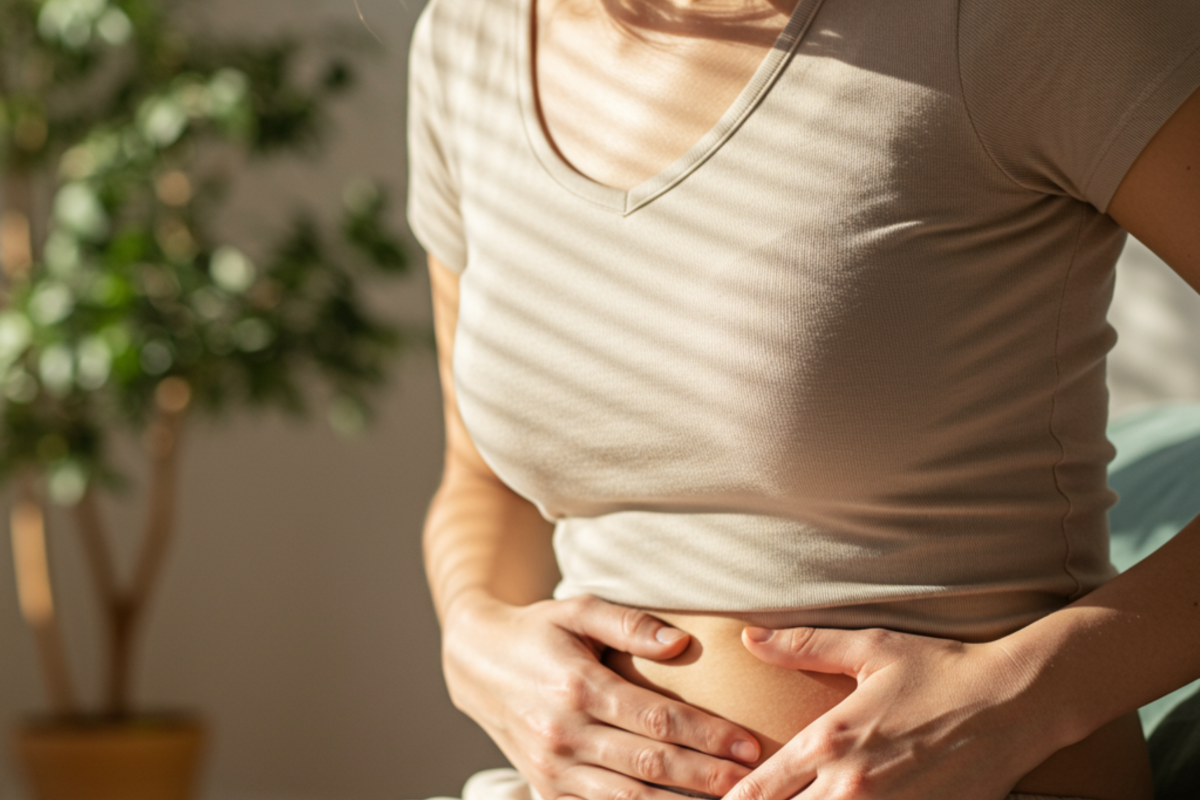Infertility is a condition that affects millions of women worldwide, often causing not only physical but also emotional distress. Clinically, female infertility is defined as the inability to achieve pregnancy after one year of regular, unprotected intercourse during the time of ovulation. However, a broader understanding also includes the inability to carry a pregnancy to term, recognizing that recurrent miscarriages and complications can be just as challenging as conception difficulties.
The causes of female infertility are numerous and complex. Some common factors include hormonal imbalances, ovulation disorders, structural abnormalities of the reproductive tract, and underlying health conditions such as polycystic ovary syndrome (PCOS) or endometriosis. Lifestyle factors, age, and environmental influences can also play significant roles.
Beyond the physical aspects, infertility often carries a heavy emotional burden. Women and couples facing these challenges may experience feelings of frustration, sadness, or anxiety, underscoring the importance of a compassionate and holistic approach to care. Understanding that infertility encompasses both the struggle to conceive and to sustain a pregnancy helps broaden the conversation, allowing for more inclusive and supportive solutions.
Given the prevalence of infertility and its profound impact on individuals and families, exploring a variety of approaches—including both conventional medicine and alternative therapies—can empower women to make informed choices about their reproductive health.
Chinese Medicine Perspectives: Restoring Balance for Fertility
From the viewpoint of traditional Chinese medicine (TCM), infertility is not merely a result of isolated physical dysfunctions, but rather a sign of imbalance within the body’s interconnected systems. TCM practitioners believe that the body thrives when its energies are balanced and harmonious—known as homeostasis. When these energies become disrupted, reproductive health can be affected, leading to challenges with conception or sustaining a pregnancy.
Acupuncture, a core component of TCM, is employed to restore this vital balance. By targeting specific points along the body’s meridians, acupuncture seeks to unblock stagnations and optimize the flow of Qi (vital energy). This holistic perspective emphasizes the importance of treating the whole person, rather than focusing solely on reproductive organs or symptoms.
In TCM, emotional health is intimately linked to physical wellness. Stress, anxiety, and emotional disharmony are seen as contributors to infertility, as they may disrupt the smooth flow of Qi and blood, particularly in the organs most closely associated with fertility. Therefore, treatments often incorporate strategies to promote relaxation, mental clarity, and emotional equilibrium.
Comparatively, Western medicine tends to focus on specific physiological causes and direct interventions. The TCM approach complements this by offering a broader, integrative framework, addressing both the physical and emotional dimensions of reproductive health. This synergy between traditions can provide a more comprehensive path toward fertility and overall well-being.
Key Organ Systems and Meridians Involved in Reproductive Health
In traditional Chinese medicine, several organ systems and meridians are considered central to female reproductive health. Each plays a specific role in maintaining fertility, and imbalances in these systems can disrupt the delicate processes required for conception and pregnancy.
The Kidney is revered as the root of life and reproduction. It is responsible for storing “Essence”—the foundational energy that governs genetic makeup, hormone balance, and the reproductive system. A deficiency in Kidney energy can manifest as hormonal irregularities, poor egg quality, or challenges with conception.
The Liver plays a critical role in regulating the flow of blood and Qi throughout the body, directly impacting ovulation and menstruation. When the Liver becomes stagnant—often due to stress or unresolved emotions—menstrual irregularities, premenstrual syndrome (PMS), and mood disturbances can arise. Ensuring the Liver’s smooth function supports regular cycles and emotional stability.
The Heart, according to TCM, governs the mind and spirit, and its well-being is essential for emotional balance. It also controls blood circulation and ensures that the uterus receives adequate nourishment. Emotional stress or anxiety can disrupt the Heart’s connection to the uterus, potentially affecting fertility.
The Spleen is central to energy production, metabolism, and the transformation of nutrients into blood and Qi. A strong Spleen supports a healthy menstrual cycle and hormone production, particularly during the luteal phase, which is vital for sustaining early pregnancy.
The Uterus, often referred to as the “Palace of the Child,” is the focal point of female fertility. It is intricately connected to both the Heart and Kidneys, and its vitality depends on the harmonious interaction of these organs.
Several meridians, or energy pathways, are also crucial:
- The Penetrating Meridian oversees menstrual and hormonal cycles.
- The Conception Meridian regulates Yin energy, supporting reproductive potential.
- The Governing Meridian manages Yang energy, influencing hormones like progesterone and testosterone.
- The Girdle Meridian connects major reproductive channels, helping to manage issues like excessive vaginal discharge or risk of miscarriage.
By targeting these organs and meridians through acupuncture and herbal therapies, TCM aims to restore balance, optimize hormonal function, and create an environment conducive to fertility.
Nutritional and Supplement Strategies to Enhance Fertility
Optimizing nutrition is a vital component of supporting reproductive health, whether approached from a Western or Eastern perspective. A balanced diet, rich in essential nutrients, can enhance the body’s natural fertility and improve the chances of successful conception and pregnancy.
Herbal teas such as raspberry and nettle are often recommended in fertility-supportive regimens. Steeping one teaspoon of each in an 8-ounce cup of hot water, two to three times daily, provides a gentle way to nourish the body. Raspberry leaf is known for its uterine toning properties, while nettle offers a rich source of vitamins and minerals that strengthen overall vitality.
In addition to herbal support, specific vitamins and nutrients have been identified as particularly beneficial for female fertility:
- Prenatal multivitamin: Ensures a broad spectrum of essential nutrients, supporting overall reproductive health.
- Essential Fatty Acids (EFA): These healthy fats are crucial for hormone production, brain function, and heart health.
- Vitamin E (400 IU/day): Research suggests it may improve egg quality and enhance fertility.
- PABA (400 mg/day): Believed to boost the effects of estrogen, potentially increasing fertility.
- Co-enzyme Q10 (30-100 mg/day): May improve egg quality, especially in women undergoing fertility treatments.
- Folic Acid (400 mcg/day): Critical for preventing neural tube defects and supporting early fetal development; should be taken with Vitamin B12 for maximum effectiveness.
- Vitamin B6 (30-50 mg/day): Shown to regulate hormones and support ovulation.
- Zinc (30 mg/day): Essential for the formation of genetic material; deficiency can lead to infertility or miscarriage.
- Selenium (50 mcg/day): A powerful antioxidant that helps protect against free radical damage, reducing the risk of birth defects and miscarriages.
- L-Arginine (16 g/day): Some studies indicate it may improve fertility in women who have not succeeded with in vitro fertilization (IVF).
- Vitamin C (500-1000 mg/day): Supports immune health and protects reproductive cells from oxidative stress.
While these nutrients offer substantial benefits, it is important to consult with a healthcare provider before beginning any new supplement regimen, especially when trying to conceive. Individual needs vary, and professional guidance ensures safety and efficacy.
Exploring Further: Recommended Resources for Fertility Support
For those interested in deepening their understanding of fertility from both traditional and integrative perspectives, several well-respected books offer invaluable insights and practical guidance. These resources can empower individuals and couples to take an active role in their reproductive journey, combining knowledge from Western and Eastern traditions.
The Infertility Cure by Randine Lewis, Ph.D., is a comprehensive guide rooted in Chinese medicine principles. It explores the underlying causes of infertility and presents natural strategies—including acupuncture, herbs, and lifestyle changes—to restore fertility and balance.
Fertility Wisdom by Angela C Wu, LAc, OMD, draws upon decades of clinical experience, blending case studies and practical advice to help readers create personalized fertility plans that address both body and mind.
Fertility and Conception by Zita West offers a holistic overview of reproductive health, integrating nutrition, emotional well-being, and medical interventions. It is an accessible resource for anyone seeking clear, evidence-based guidance.
Pregnancy the Natural Way by Zita West focuses on natural methods to support conception and healthy pregnancies, emphasizing nutrition, stress management, and self-care practices.
Exploring these resources can provide valuable context and support for those navigating fertility challenges. By staying informed and open to a range of approaches, individuals can make empowered decisions that align with their unique needs and aspirations for health and family.
































